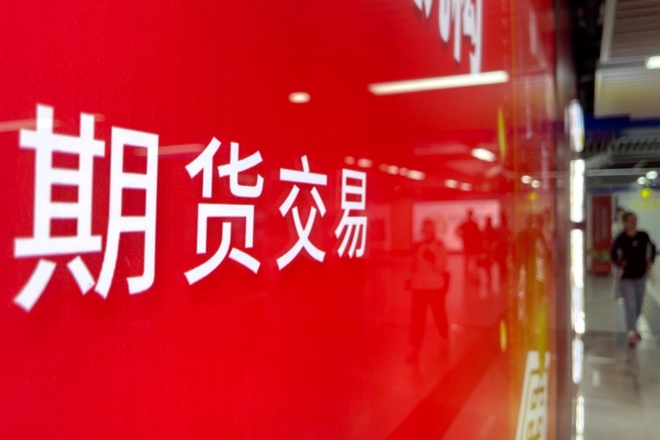How Will Traders Become Compliant With Tight Regulations For High-Frequency Trading? (AI Translation)
Listen to the full version


文|财新周刊 岳跃
By Caixin Weekly’s Yue Yue
“申报费一涨再涨、交易所返还取消、交易成本数倍增加,高频策略全部失效,好日子早就到头了。”一家外资高频交易商的内部人士近日对财新称,中国监管机构和交易所近年政策频出,剑指高频交易,“几斧头下来后,我们整个盘子现在降到了两三年前的十分之一,下一步可能要考虑裁员了”。
"Application fees have been rising continuously, exchange rebates have been canceled, and trading costs have increased several-fold. High-frequency strategies are completely ineffective now, and the good days are long gone," an insider at a foreign high-frequency trading firm recently told Caixin. In recent years, China's regulators and exchanges have introduced numerous policies targeting high-frequency trading. "After several heavy hits, our entire trading volume has now decreased to one-tenth of what it was two or three years ago. We may need to consider layoffs next," the insider added.
财新此前报道,中国期货市场潜伏着一股神秘的力量,它们大多低调地隐身于贸易公司背后,实际从事高度专业化的高频交易,成交巨量且获利颇丰。它们在海外,正是一个个名字响当当的高频交易巨头(参见本刊2022年第5期《中国期市“房间里的大象”》)。
Caixin previously reported that a mysterious force is lurking in China's futures market. These entities are often discreetly hidden behind trading companies, engaging in highly specialized high-frequency trading. They conduct a large volume of transactions and reap considerable profits. Overseas, these entities are known as major high-frequency trading giants (refer to Issue 5, 2022 of our journal, "The Elephant in the Room of China's Futures Market").
从严格意义上讲,境外机构进入中国期市投资合法合规的路径较为有限,一是直接参与原油期货、铁矿石期货、PTA期货等特批品种的交易,二是通过QFII(合格境外机构投资者)渠道,交易数十种商品期货期权和金融期货期权。
Strictly speaking, the legal and compliant pathways for foreign institutions to invest in China's futures market are quite limited. One way is to directly participate in trading specially approved commodities such as crude oil futures, iron ore futures, and PTA futures. The other way is through the QFII (Qualified Foreign Institutional Investor) channel, which allows trading of dozens of commodity futures options and financial futures options.

- DIGEST HUB
- Regulatory policies in China targeting high-frequency trading (HFT) have significantly increased trading costs and reduced trading volumes, with one firm's volume dropping to one-tenth of prior levels, forcing potential layoffs.
- Exchanges now exclude specified high-frequency traders from fee reductions, increasing costs up to 5-10 times, and leading to a dramatic rise in commission fees.
- Despite regulatory challenges, some foreign HFT firms attempt to comply and adapt by applying for private fund manager licenses or shifting to legitimate asset management, though practical difficulties persist.
In recent years, efforts to regulate high-frequency trading (HFT) in China have intensified, leading to multiple challenges for foreign trading firms operating in the market. A key issue affecting these firms is the continuous rise in application fees, the cancellation of exchange rebates, and significantly increased trading costs, rendering high-frequency strategies largely ineffective [para. 1].
High-frequency traders in China conduct a large volume of transactions and reap considerable profits, often disguising their activities behind trading companies. Legal pathways for foreign institutions to engage in China's futures market are limited, including participation in specific approved commodities through direct trading or the QFII (Qualified Foreign Institutional Investor) channel [para. 3][para. 4]. Despite following regulations, these practices are often viewed as operating in a grey area [para. 4].
Amidst heightened public scrutiny and regulatory pressures, these entities face allegations of making massive profits and transferring funds abroad, attracting condemnation. The China Securities Regulatory Commission (CSRC) has stated plans to enhance regulation and monitoring of high-frequency trading to ensure market stability, particularly protecting small and medium investors who dominate the market [para. 5][para. 6]. This involves balancing the benefits of high-frequency trading while mitigating its negative impacts, enhancing system security, and promoting the healthy development of capital markets [para. 7].
China's exchanges, such as the Shanghai Stock Exchange (SSE), Shenzhen Stock Exchange (SZSE), and Beijing Stock Exchange (BSE), have established procedural rules to manage high-frequency trading [para. 8]. Measures have included raising reporting fees, controlling trading volumes, and using other methods to curtail high-frequency activities. Some foreign high-frequency trading firms aspire to become legitimate by applying for private fund manager licenses, but practical obstacles often hinder this transformation [para. 9][para. 10][para. 11].
Changes in transaction fees have severely impacted high-frequency trading strategies. The absence of fee rebates has caused trading costs to multiply, affecting both medium and smaller firms significantly [para. 14][para. 15]. The practice of "trading rebates" has become controversial as it deviates from its initial intention to support futures companies, exacerbating commercial competition and leading some futures companies to charge commissions below cost levels [para. 15][para. 16]. As a result, the overall trading volume and profits in the futures market have declined, impacting many firms’ financial health [para. 17][para. 18][para. 19].
Efforts to transition from proprietary trading to asset management have met with challenges; only one firm successfully secured a private fund manager license, which was later revoked. Attempts by other high-frequency firms to gain regulatory approval have also faltered [para. 20][para. 21][para. 22].
Foreign high-frequency traders have been criticized for “disrupting the market,” increasing volatility, and “skimming off profits.” Although these allegations lack substantiated evidence, a perception persists that they crowd out other orders and reduce true market liquidity [para. 42][para. 43]. However, advocates argue that high-frequency trading provides essential liquidity and risk management benefits [para. 47][para. 48].
Globally, regulations on high-frequency trading vary. In the U.S. and Europe, HFT operations require certain licenses but aren't forbidden, while Japan demands registration and detailed reporting. Many trading firms find Japan's regulatory environment favorable due to transparent requirements and a supportive stance towards HFT [para. 53][para. 54][para. 55].
In conclusion, while increased regulation in China aims to stabilize the market and protect smaller investors, it has imposed significant operational and financial burdens on high-frequency trading firms, prompting some to reconsider their position in the market or seek alternatives abroad [para. 58][para. 62].
- Optiver Shanghai Trading Co., Ltd.
澳帝桦(上海)商贸有限公司 - Optiver Shanghai Trading Co., Ltd., operating as Optiver, is a well-known high-frequency trading firm headquartered in the Netherlands. Their main Chinese entity, Optiver Shanghai, was established in October 2012. Despite their significant trading volume in China's futures market, their private fund management application was revoked two years after approval by the China Securities Investment Fund Association. The firm originally utilized a trade company structure for financial transactions.
- Jump Trading Shanghai Co., Ltd.
跃申实业(上海)有限公司 - Jump Trading's Shanghai entity, Yesheng Industrial (Shanghai) Co., Ltd. (跃申实业), reported investment income of RMB 2.382 billion and RMB 2.654 billion in 2020 and 2021, respectively. Its business operations primarily involve high-frequency trading in financial markets rather than substantial physical commodity trading. The company has faced scrutiny for using trade invoicing strategies perceived as legally compliant but contentious.
- Issue 5, 2022:
- Caixin's journal 'The Elephant in the Room of China's Futures Market' describes major high-frequency trading giants.
- August 2022:
- Exchanges introduced measures imposing application fees on clients exceeding information flow standards.
- March 28, 2023:
- Optiver Private Fund Management (Shanghai) Co., Ltd.'s qualification was revoked due to not filing its first private equity fund product within 12 months.
- November 2023:
- Several exchanges implemented trading limits on the most actively traded and highest volume varieties.
- January 2024:
- The China Futures Association reported operating conditions of futures companies, showing significant decreases in revenue and profits after new fee reduction plans were implemented.
- February 2024:
- The Futures Association ceased public disclosure of industry total commission revenue data.
- Early 2024:
- Various futures exchanges issued fee reduction plans excluding specified programmatic reporting clients.
- GALLERY
- PODCAST
- MOST POPULAR





 Sign in with Google
Sign in with Google
 Sign in with Facebook
Sign in with Facebook
 Sign in with 财新
Sign in with 财新